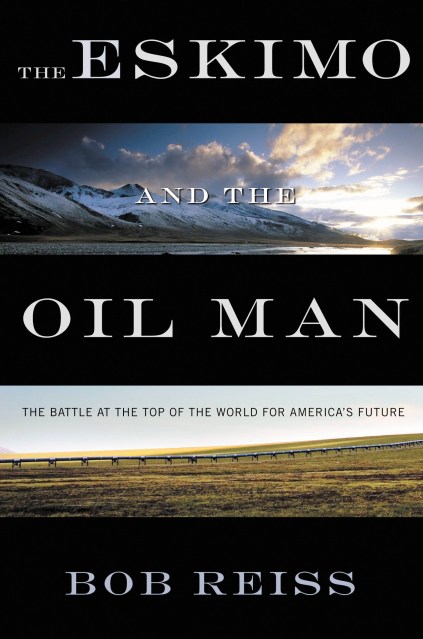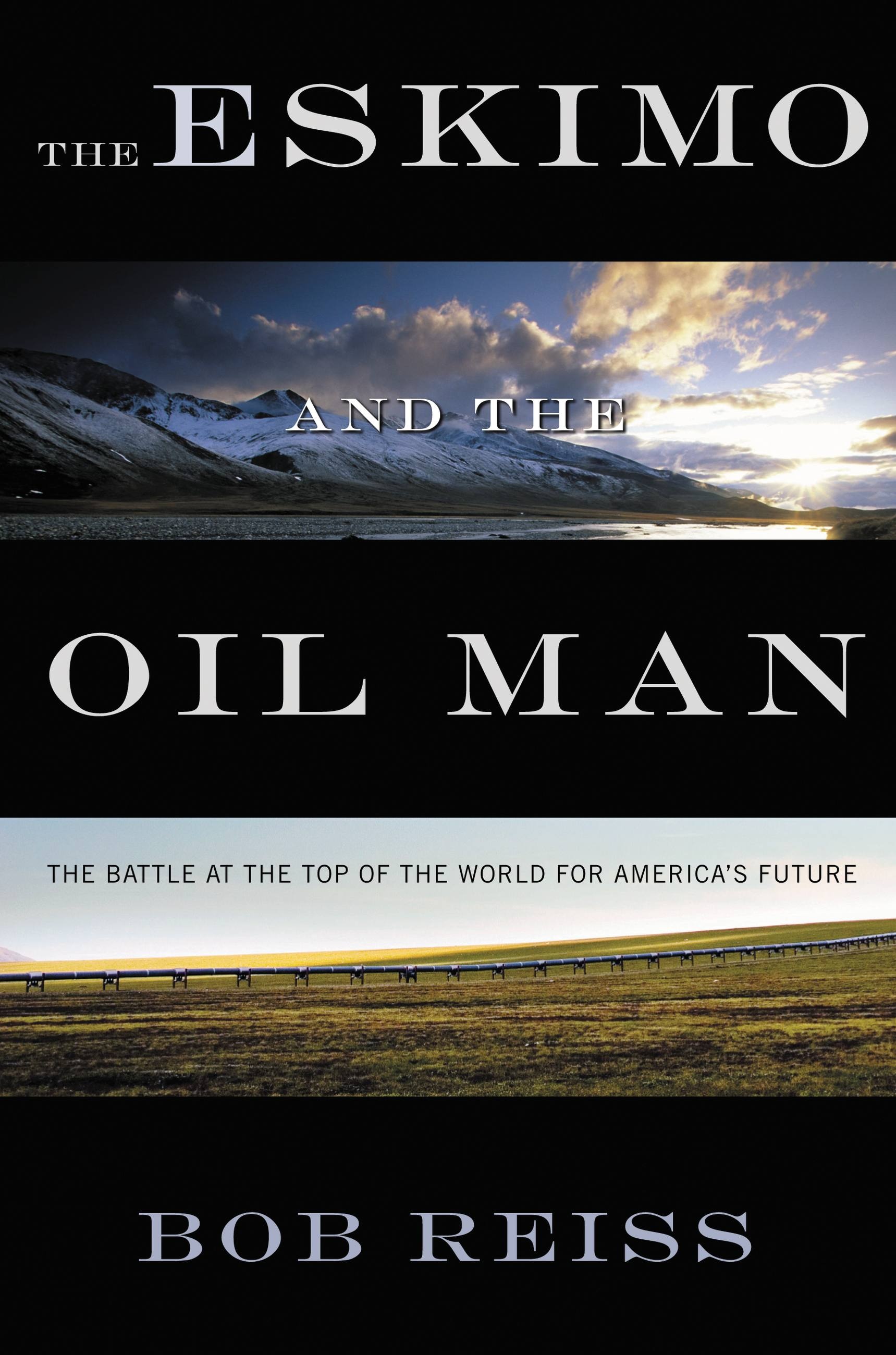Promotion
Use code BESTBOOKS24 for 25% off sitewide + free shipping over $35
By clicking “Accept,” you agree to the use of cookies and similar technologies on your device as set forth in our Cookie Policy and our Privacy Policy. Please note that certain cookies are essential for this website to function properly and do not require user consent to be deployed.
The Eskimo and The Oil Man
The Battle at the Top of the World for America's Future
Contributors
By Bob Reiss
Formats and Prices
Price
$37.00Price
$47.00 CADFormat
Format:
- Hardcover $37.00 $47.00 CAD
- ebook $13.99 $17.99 CAD
This item is a preorder. Your payment method will be charged immediately, and the product is expected to ship on or around May 15, 2012. This date is subject to change due to shipping delays beyond our control.
Also available from:
The Eskimo and the Oil Man tells this story through the eyes of two men, one an Iñupiat Eskimo leader on Alaska’s North Slope, the other the head of Shell Oil’s Alaska venture. Their saga is set against the background of an undersea land rush in the Arctic, with Russian bombers appearing off Alaska’s coast, and rapid changes in ice that put millions of sea mammals at risk. The men’s decisions will affect the daily lives of all Americans, in their cities and towns and also in their pocketbooks. The story begins as a fight and ends with a surprise.
In the spirit of Thomas L. Friedman’s Hot, Flat, and Crowded, bestselling author Bob Reiss traveled in America’s High North over three years and spent time with scientists, diplomats, military planners, Eskimo whale hunters and officials at the highest levels of the government. He traveled to remote villages and sailed on a US icebreaker.
The Eskimo and the Oil Man reflects the issues dividing every American community wrestling with the balance between energy use and environmental protection, our love of cheap gas and the romance of pristine wilderness.
-
Bob Reiss captures the expanse, the challenge, and the potential of the changing Arctic, and the clear need for a bold national strategy to realize the promise of this extraordinary frontier.Gary Roughead, Admiral, U.S. Navy (Retired) former Chief of Naval Operations
-
An on-the-ice view of the struggle over offshore oil exploration in Alaska.
With U.S. demand for oil skyrocketing, major petroleum companies believe the last huge undiscovered oil fields will be found north of the Arctic Circle beneath the sea. Out front in the search is Shell Oil Company, which plans to sink an exploratory well in the seabed off Alaska's North Slope this summer. In this brisk, revealing account, veteran author and journalist Reiss (Black Monday, 2007, etc.), a former correspondent for Outside magazine, tells the story of two men whose dealings are critical to the region's future. Pete Slaiby is the Shell employee charged with clearing the way for exploratory drilling. Edward Itta, an Inupiat Eskimo whaler and the Barrow-based mayor of the North Slope of Alaska, must protect his people's natural resources ("The ocean is our garden," he says) while ensuring that acceptable oil drilling generates much-needed tax revenue. Based on interviews with these men and others, the author describes the misunderstandings, suspicions and interactions between Slaiby and Itta in 2010 as they discussed plans that would transform a pristine region whose waters have sustained tribal cultures and subsistence hunting for many generations. Itta, concerned at first about the possibility of oil spills and that seismic work might scare off whales, helped build safeguards into Shell's drilling plans for 2011, which were eventually thwarted by U.S. agencies. While Russia and other nations have clear-cut policies on Arctic oil, the U.S. has long remained indecisive. With Itta working to convince environmental and other groups to hold off on further lawsuits to block Shell's exploration of its offshore leases, both he and Slaiby gradually became "uneasy allies" who recognized that their common enemy was a byzantine federal government mired in regulations and policies.
A rewarding glimpse behind the Alaska oil headlines.
--Kirkus Reviews
-
Despite the slightly deceptive title, Reiss offers a nuanced evaluation of the necessity of offshore drilling and ecological preservation. Tracing almost a year in the lives of Edward Itta, the Eskimo mayor of the North Slope of Alaska, and Pete Slaiby, a powerful Shell executive, the engrossing narrative depicts the struggle to reach a drilling decision that will benefit Shell while protecting the native Iñupiat community's way of life. In light of the 2010 BP oil spill, the North Slope community is especially wary of the detriments of offshore drilling. Meanwhile, Shell spends billions on leases and equipment only to find itself unable to drill year after year. Striking a balance that benefits both the community and the corporation requires outreach, education, understanding, and trust, as well as careful navigation of native culture to arrive at a sensitive medium. In his balanced portrayal of this quandary, Reiss suggests that the U.S. should learn from Norway and streamline the legislation for offshore regulation, as well as instituting tax reforms to better benefit the economy should a site prove prosperous. Further attention should be paid to the Arctic, Reiss (Black Monday) argues, because if the titular figures can find middle ground, then the government and citizens should be amenable as well.
--Publisher's Weekly
-
Reiss has taken a highly charged and divisive subject and gotten inside the lives and values of the principles with empathy and insight. "The Eskimo and The Oil Man" is a most illuminating contribution to issues that will become more important as new discoveries follow drilling offshore.
--William K. Reilly, co-chair of the Deepwater Horizon Commission, Chairman Emeritus of the World Wildlife Fund, former head of the EPA
- On Sale
- May 15, 2012
- Page Count
- 320 pages
- Publisher
- Business Plus
- ISBN-13
- 9781455525249
Newsletter Signup
By clicking ‘Sign Up,’ I acknowledge that I have read and agree to Hachette Book Group’s Privacy Policy and Terms of Use







